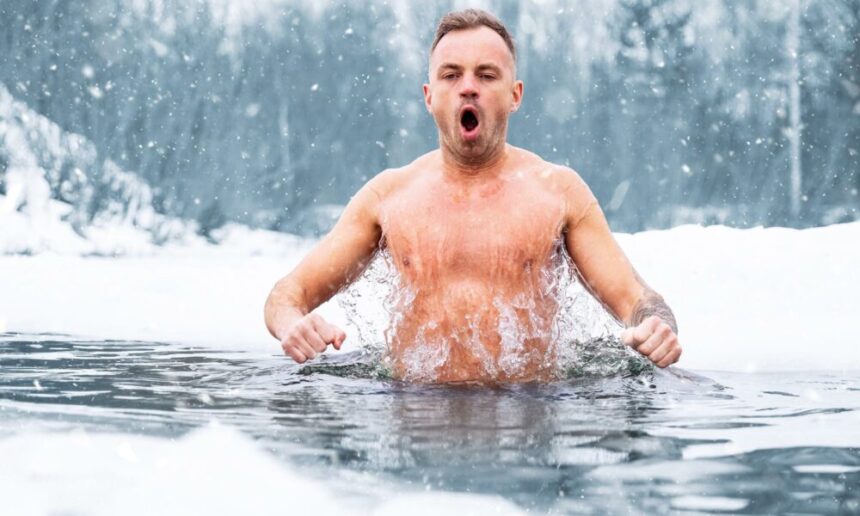Cold water therapy has garnered much attention in recent times due to its purported health gains. Its proponents argue that it benefits one’s body as the immune system booster, anxiety and stress reducer among other things. This article therefore focuses on this topic by examining both the benefits of cold-water therapy and scientific evidence on the same as well as risks involved.
A Personal Encounter
During a training session on how to manage stress, a student came up with an interesting idea for the instructor; bathing in ice-cold water can drastically reduce stress and enhance health. Intrigued but unfamiliar with this claim, the instructor decided to investigate further, beginning with the renowned figure known as the “IceMan,” Wim Hof.
The Iceman Phenomenon
Wim Hof also known as Ice Man is a Dutch extreme athlete who is famous for his ability to stay in freezing temperatures. Hof’s methods include ice-cold baths, meditation and certain breathing exercises. He claims that these practices have had profound effects on his health such as reduced anxiety, depression and improved cardiovascular functioning.
Such claims made by Hof have attracted considerable media attention, which resulted in numerous documentaries being made about him. While some studies indicate that his immune system possesses exceptional resilience against viral attacks, their compelling nature calls for additional scientific investigation.
People also like events management services
Historical Context and Early Practices
The use of cold water for health benefits is not a new concept. As far back as 400 BCE Hippocrates advocated cold baths to dispel fatigue, restore vitality or even bring about wellness feelings of euphoria. This ancient practice set grounds for further research into therapeutic properties of cold water.
Modern Scientific Studies
Several modern studies have attempted to validate the benefits of cold-water therapy. For example, research conducted among female swimmers accustomed to swimming regularly in icy waters showed that they experienced improvements while suffering from mood swings or other emotional disturbances related to menstruation. In this peer-reviewed study, 47% of the participants had less anxiety, a lower level of menstrual bleeding was reported by 30%, and the number of night sweats decreased by 20%.
However, it is important to note that cold water is not synonymous with ice water. It is easier to find cold showers than it is to immerse oneself in ice water which is a different and more extreme thing altogether.
Meta-Analysis and Expert Opinions
A meta-analysis of 104 studies on cold water therapy by James B. Mercer, a psychologist at the Arctic University of Norway showed large variability in the benefits reported, making it difficult to reach definitive conclusions. Concerning cold-water exposure some investigations revealed positive outcomes whereas others demonstrated minimal impacts.
Mercer’s analysis displays inconsistencies in temperature variations from mild cold to freezing among these studies. The health benefits are thus not clearly agreed upon due to variation in temperature and methodologies used.
Another expert in psychology who doubles as an athlete, Heather Meese reviewed the Wim Hof Method specifically. This research could not find any strong evidence supporting claims such as enhanced cardiac autonomic function or significant changes in psychological parameters. In spite of his exercises there were no noticeable improvements within the autonomic nerve system function that controls involuntary activities like breath and heartbeats.
Also read: Home maintenance tips
Risks and Precautions
Though there might be benefits to using cold water, it is important to consider the risks especially if the individual in question has an existing illness. The common public should be careful when dealing with such practices especially those who have heart problems. In susceptible persons, the sudden effect of cold water might lead to cardiac arrest.
There are several tragic instances where individuals lost their lives during extreme cold water immersion attempts. These scenarios stress the need for caution as well as having an expert’s opinion before embarking on such practices.
Practical Advice
Those who want to try out the use of cold water should be moderate about it. Cold showers rejuvenate and refresh, giving a natural energy boost. On the other hand, hot showers are beneficial for relaxation and ensuring a restful sleep.
Conclusion
People often discuss cold water therapy due to its historical practices and a topic of scientific research among researchers. It is said that this therapy is beneficial for reducing stress and enhancing mood. However, more scientific investigation is needed. There are also some risks involved in this therapy as discussed earlier. It is always recommended to discuss with a healthcare professional before adding this practice to one’s life. Moreover, scientific research continues to reach a conclusion about its health benefits and risks.
Know about PRO services in Dubai








